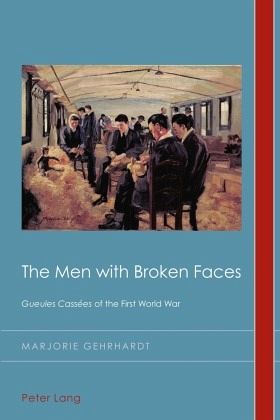
The Men with Broken Faces
'Gueules Cassées' of the First World War
Herausgegeben: Emden, Christian; Midgley, David Robin
Versandkostenfrei!
Versandfertig in 6-10 Tagen
71,90 €
inkl. MwSt.

PAYBACK Punkte
0 °P sammeln!
Facially wounded servicemen were perhaps the ultimate victims of the First World War. They became walking reminders of the conflict and their experiences reveal the impact of the war not only on the combatants but also on European societies at large. This book explores for the first time the individual and collective significance of facially disfigured First World War combatants in France, Germany and Great Britain. The analysis undertaken in this book uncovers how the wounded perceived and presented themselves and how they were perceived and represented by others. Artistic and literary repres...
Facially wounded servicemen were perhaps the ultimate victims of the First World War. They became walking reminders of the conflict and their experiences reveal the impact of the war not only on the combatants but also on European societies at large. This book explores for the first time the individual and collective significance of facially disfigured First World War combatants in France, Germany and Great Britain. The analysis undertaken in this book uncovers how the wounded perceived and presented themselves and how they were perceived and represented by others. Artistic and literary representations are considered, along with initiatives carried out by hospitals, the government and the combatants' fellow countrymen. With an interdisciplinary and comparative approach, this study illuminates our understanding of how the combatant and the onlooker made sense of the experience and the memory of the war.














